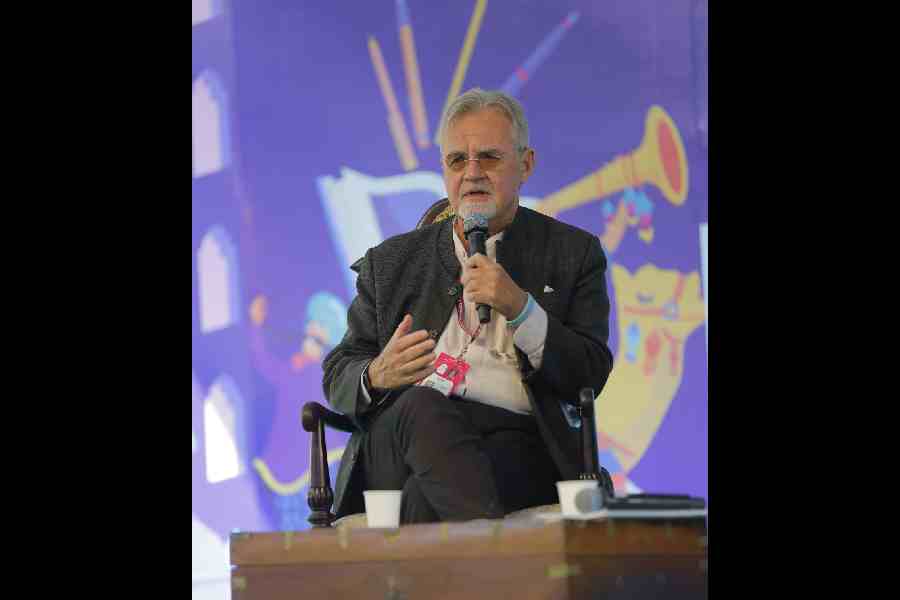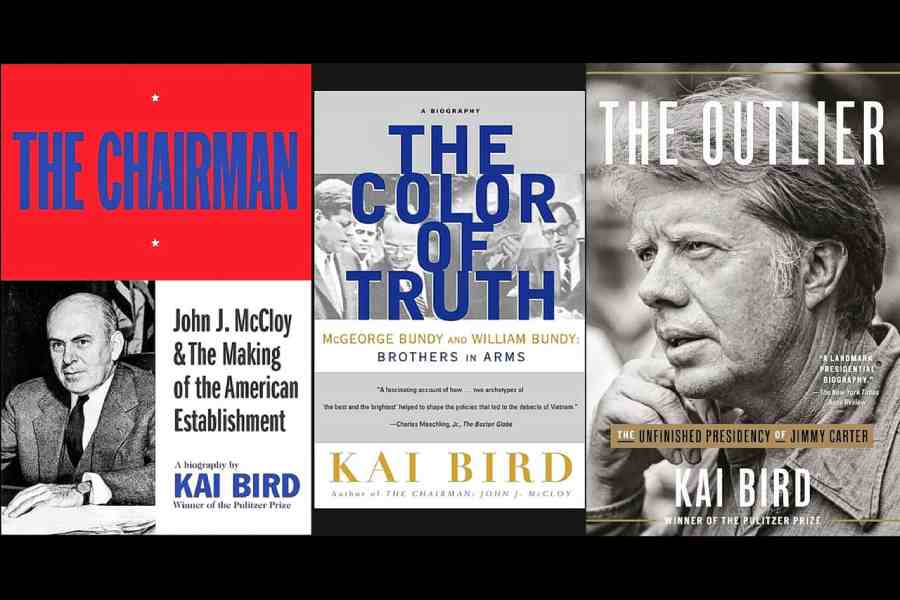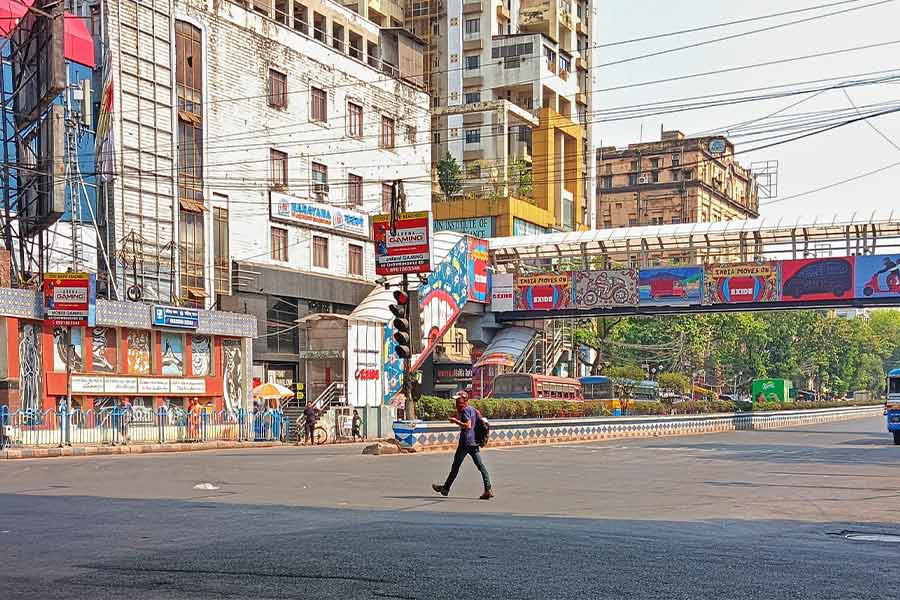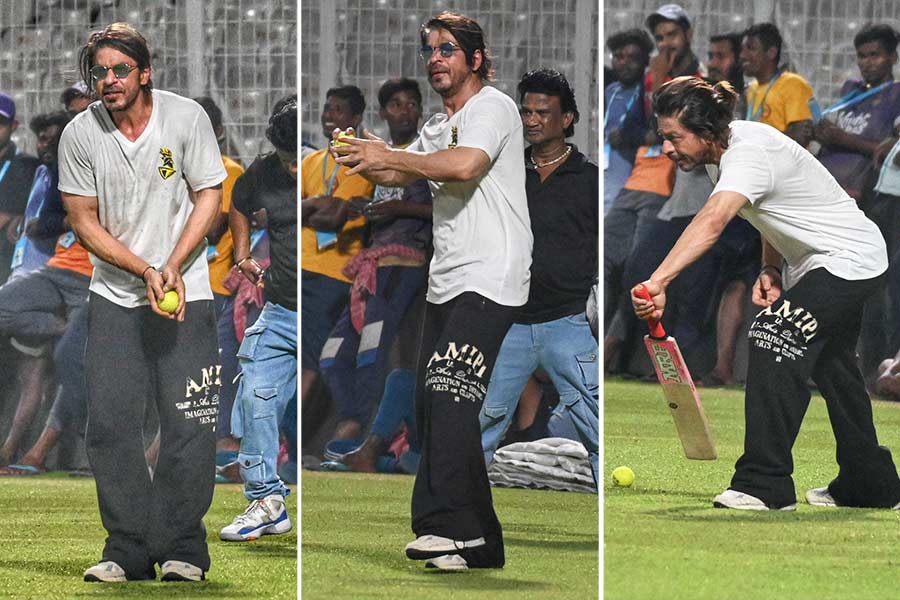Kai Bird has a keen eye for history. While the world knows him as the man co-authoring American Prometheus: The Triumph and Tragedy of J. Robert Oppenheimer with American historian Martin J Sherwin, which was adapted on the screen by Christopher Nolan, little did we know that he had a first-hand experience of history in Calcutta in 1972.
The Pulitzer Prize-winning author used to travel on trains in India in his 20s. “I’ve been to Calcutta a couple of times. I travelled as a young man on third-class trains all over India. I must have been in my early 20s and while in Calcutta at that time, in early ‘72, I attended the first political rally and attended the first speech that Sheikh Mujibur Rahman gave when he was freed from Pakistan’s prisons and became prime minister of Bangladesh. And that was in Calcutta with a million people in attendance,” shared Bird referring to the historic joint address that Rahman gave in 1972 to Indians and Bangladeshis at the Brigade Parade Ground.

Kai Bird at Jaipur Literature Festival
Cut to 2024, Bird sat with t2oS post his session at the Samsung Galaxy Tab S9 Series Jaipur Literature Festival and talked about writing the biography of J. Robert Oppenheimer, the American theoretical physicist also known as the ‘father of atomic bomb’, to explain the nuclear age to himself. The septuagenarian, who started off his career as a journalist and who takes an interest in Bollywood, also talked about his process and his next biography that will explain former US president Donald Trump.
It’s great to have you here in India, the man who gave a literary form to the life of Oppenheimer that metamorphosed into Christopher Nolan’s film. Tell us about your experience of co-authoring the biography with Martin J. Sherwin.
I wrote the book because Oppenheimer is this historic, iconic figure, the father of the atomic bomb. Biographers want to humanise their subjects. So, we wanted to explain who he was in his private life, his politics, his marriage, and why he did what he did. It’s a story that explains American politics, explains the atomic era that we live in today and that we’re still living with. And it’s a very dangerous time as there are still nuclear weapons that can be used.
My co-author on the book, Martin Sherwin, who died October 2021, at the age of 84, started working on the book in 1980. He came to me 20 years later and asked me to join him on his journey and I did. By that time, he had gathered all this research of around 50,000 pages of archival documents and 150 interviews but he hadn’t started to write, and he had gotten stuck. So I started to write, and then that got him unstuck, and he began to write, and it turned into a wonderful collaboration.
It’s a 720-page book with 100-plus pages of footnotes. It’s a fabulous story about a brilliant scientist and intellect who’s not only a quantum physicist, but he’s someone who was interested in Hindu spiritual texts like the (Bhagvad) Gita, so much so that he learned Sanskrit so that he could read it in the original. So he was a polymath in many ways.
The film, Oppenheimer, was released last year and is now slated to win big at the Oscars. Have you watched the film?
I’ve seen the film six times. I think it’s a very interesting film; I think it’s an artistic achievement and it’s a Hollywood miracle that it closely follows the book and is accurate historically in large measure. So, I think it’s a film that introduces many people all over the world to the story of not only Oppenheimer, but also to have them argue and question what happened in Hiroshima and Nagasaki. It’s an important story and the film helps to encourage people to read the book.
You earlier said that as biographers you humanise the person in question. Tell us about your process, like how do you choose your subject?
You have to be very careful because biography is very difficult and arduous and it takes at least five years on an average to write a biography, sometimes longer. So you want to make sure that you pick a subject that you really have a strong curiosity about. With Oppenheimer, I wanted to explain the nuclear age to myself.
For my other books, like I chose to write a biography of McGeorge Bundy because he was the national security advisor to John F. Kennedy and then Lyndon B. Johnson. It’s a book that explains why and how America got involved in this terrible war in Vietnam because he was one of the major architects of that war. It’s a personal motivation.
You have written a lot of biographies including The Outlier: The Unfinished Presidency of Jimmy Carter, The Color of Truth: McGeorge Bundy and William Bundy, Brothers in Arms: The Chairman John J. McCloy, Making of the American Establishment and Hiroshima’s Shadow: Writings on the Denial of History and the Smithsonian Controversy. What was it about writing biographies that made you take it up as a full-time career?
Well, I started off in my 20s as a journalist. And then I sort of wanted to do a book about the energy crisis of 1979-80 and the influence of big oil on US foreign policy. As I did the research, I drifted into choosing to write about one person, a man named John J. McCloy, who explains that world. And that’s the power of biography.
I wish biography was more widely read because it’s the best form of history. It’s the most accessible. It’s more easy, easier to read. And there are Indian biographers, great Indian biographers. There’s Ramachandra Guha, who’s done this massive two-volume biography of (Mahatma) Gandhi. And, you know, he does the same thing. He dehumanises Gandhi as a large, iconic figure and he explains the real man in a very personal way. And I think that’s very important to me.
Any biography that you have read of other authors?
I’ve read Guha’s biography of Gandhi and a biography of (Muhammad Ali) Jinnah. I have also read some biographies of Bollywood actors, but I cannot recall the names.
Any Indian personality that you would want to write about?
I’d be interested in writing a biography of Indian Prime Minister Narendra Modi, but I don’t have the expertise in the language.
What are you working on next?
I’m working on a new biography of a man named Roy Cohn, who was an American lawyer in New York. And he eventually became the lawyer to Donald Trump from 1973 to 80. He moulded Trump and created Trump as a political figure. So it explains Trump, I hope.






